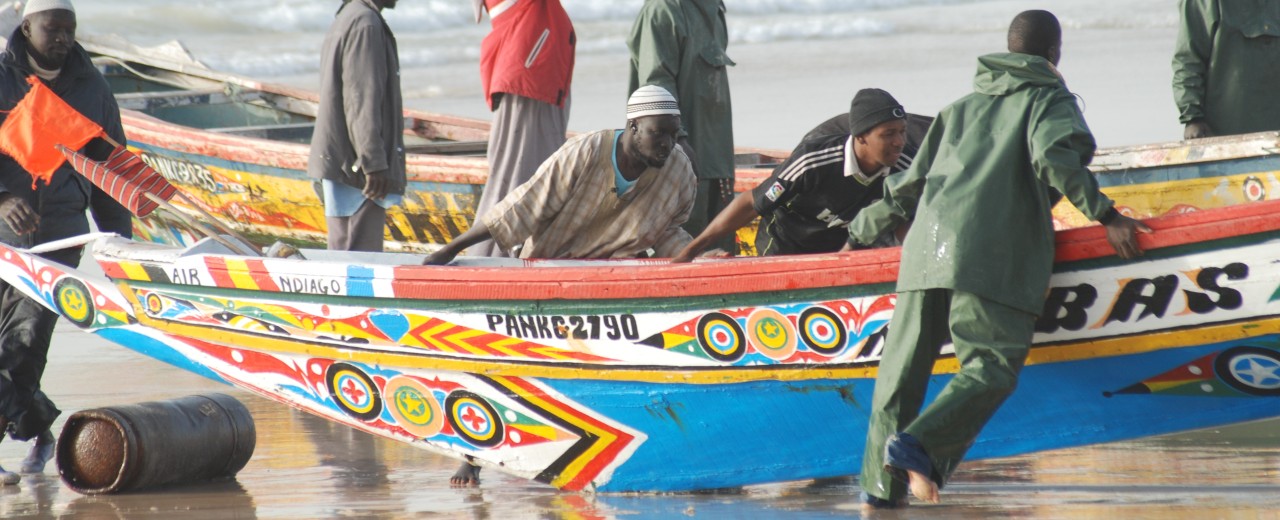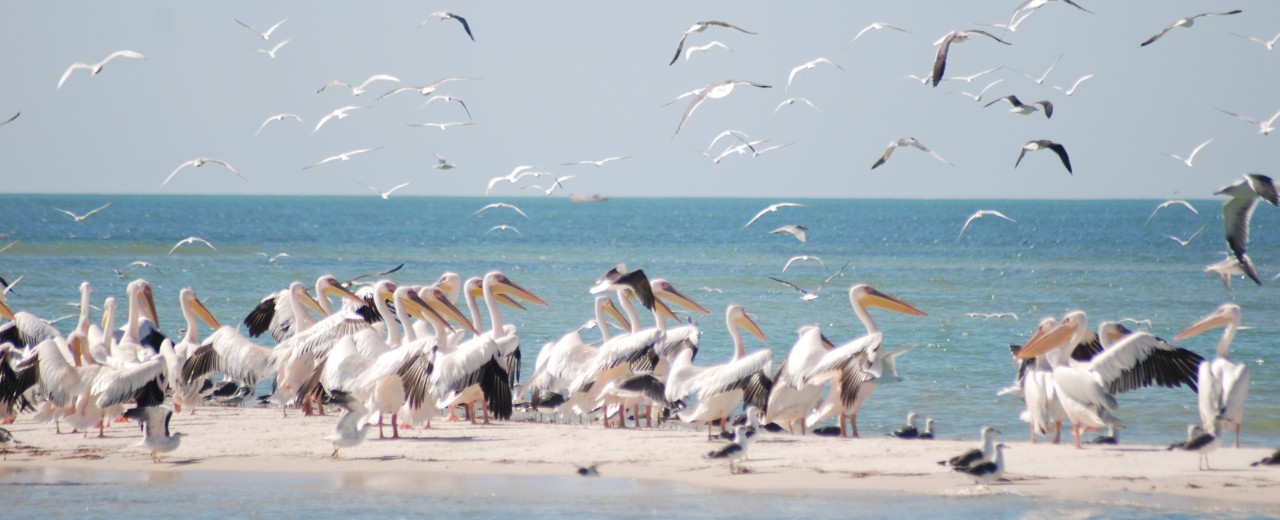Tip: Activate javascript to be able to use all functions of our website
SUSTAINABLE FISHING
Safeguarding one of the world’s richest fishing grounds
Mauritania’s coast stretches over 700 kilometres from the Western Sahara in the north to Senegal in the south. It is one of the richest fishing grounds in the world thanks first and foremost to two ocean currents of different temperatures that converge off the African coast, resulting in an area teeming with many different species of fish. The sea beside this desert country offers an ideal habitat for meagre, gilt-head bream and squid, but also tuna, white sea bass, crayfish, mackerel and many others. The abundant stocks lure fishermen from around the world.
The Mauritanians themselves are nomads and livestock farmers by tradition, roaming the country with their families and animals –two thirds of which consists of hot sand. Apart from a few fishing villages, up to around 50 years ago it was mainly foreign fishermen who helped themselves to the bounties of the seabed. The situation began to change in the 1970s. Since then, the fishing sector has grown sharply and is now a central pillar of Mauritania’s national budget. Fisheries agreements and fishing licences are primary sources of money for Mauritania; the fishing sector employs around 300,000 people in the country. The government therefore considers the further development of the “blue economy” to be crucial for the country’s future.
However, the intense use means Mauritania's underwater paradise is under severe pressure. Overfishing, illegal fishing, climate change and environmental pollution are threatening stocks. This is a major challenge for the country, which wants fishing to also feed the next generation. It is therefore important to ensure that fishing licences are not exceeded in the 200-mile zone and that the boundaries of protected areas are respected. To do this requires a clever mix of different approaches and measures. KfW has been supporting Mauritania in this project for many years on behalf of the German Federal Government as the most important donor in the sector.
Among other measures, it has financed a satellite-based surveillance system combined with radar stations, surveillance vessels and patrol boats. This helps to curtail illegal fishing. Furthermore, the small-scale fishing port in Nouadhibou is being modernised, firstly to better control what local fishermen catch from the sea and secondly to improve hygiene conditions, allowing for higher-quality processing and value creation.
Currently, a large part of the fish caught end up in fish meal and fish oil factories, partly due to poor quality. The government’s goal is to provide more fish for human consumption in order to contribute to food security in the country and the region. At the same time, KfW is providing a funding line for Mauritanian banks to drive forward the transformation of the sector. The banks can then lend to companies in the fishing sector that invest in local value creation.

Any attempt to organise the fishing sector in Mauritania on a sustainable basis needs to start before the actual fishing takes place. This is why KfW is also supporting nature and resource conservation; it is specifically involved in two particularly valuable national parks through investments in infrastructure and capacity-building measures: The “Banc d'Arguin” is a unique ecosystem with great biodiversity that is highly significant as a resting place for migratory birds. This UNESCO World Heritage Site occupies well over a third of the Mauritanian coast and is a central spawning and breeding ground for millions of young fish.
Diawling National Park lies on the border with Senegal and also offers an important habitat for countless migratory birds. KfW funds both parks directly and through the BACoMaB environmental fund, which secures a relevant part of the operating costs in the long term.
In order to be better able to estimate how much of which fish species can be caught, KfW has recently also supported the Mauritanian Oceanography Institute. There are still gaps in knowledge regarding fish stocks and their production parameters. However, sustainable catch quotas can only be established with comprehensive knowledge of the situation.
Specifically, the coast guard and the Oceanography Institute are to be located in a shared location in Nouadhibou so that they can support each other in their work. The institute will then have modern equipment to enable the Fisheries Ministry to set maximum catch quotas and management plans based on scientifically sound data. The coast guard, for its part, will register the catches and monitor compliance with the licensing requirements, as well as tackling illegal fishing.
KfW’s commitment to Mauritania consists of various finely coordinated elements. “The various projects complement each other very well,” says portfolio manager Verena Quesnel. "They are sensible in combining measures to protect resources with measures for sustainable economic use. This holistic and integrated approach coupled with the continuity of the German commitment is truly something special."
This is also evident from the impacts. Without German support, Mauritania would not have effective fisheries surveillance today. As another example, in Diawling National Park the bird population has almost doubled in six years and the number of bird species observed has increased by almost 10%. These are visible successes that extend beyond Mauritania, since the migratory birds that overwinter in Africa are also crucial for biodiversity in Germany and Europe.
Share page
To share the content of this page with your network, click on one of the icons below.
Note on data protection: When you share content, your personal data is transferred to the selected network.
Data protection
Alternatively, you can also copy the short link: https://www.kfw-entwicklungsbank.de/s/enzB6O2T
Copy link Link copied